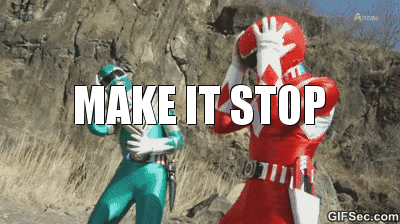Your partner has that habit that continuously makes you cringe. Maybe it's leaving hair all over the bathroom counter, or hoarding coffee cups, and food wrappers in the car.

Whatever it may be, you can't seem to let it go and it's bothering you. Now you have to confront your partner and let them know.
So how you can approach this conversation?
Do Some Self Reflecting
Consider these questions before bringing up your partner's habit with them in the first place:
Is their habit that bad?
Are you overreacting?
Are you a controlling person?
Is there something else bothering you that's causing you to be easily annoyed?
Consider your own biases before jumping to conclusions that something is annoying, and be open to feedback about things you do that might bother them.

Don't Shame Them
It can be embarrassing for your partner to find out that you're annoyed by their habit. This may cause feelings of self-doubt and inadequacy, especially when it's something they've never considered to be bothersome.

There's a good chance your partner isn't even aware of their habit, or that it's annoying you, so keep these tips in mind:
Watch your tone — approach the topic calmly and be polite. Don't yell at your partner.
Watch your words — avoid saying hurtful words like, "You're the most disgusting person!"
Discuss in private — don't bring up their habit in front of family and friends.
Find an appropriate time — don't put it off but find a time when you're both alone and not busy.
Avoid Generalizing
"You never make the bed!"
"You always leave dirty dishes in the sink!"
Using always or never is accusatory. It distracts your partner from the topic and can make them defensive, taking away from an otherwise logical point you might have.
It also may not be true. It's not fair to tell your partner that they are always doing something bad if it's only something they do sometimes.

Explain how it affects you
Letting them know how their habit affects you helps them address it by seeing beyond their habitual action. It allows them to see consequences they might not have considered.
For example: If your partner smokes cigarettes (one of the hardest habits to quit) let them know that you care about them and are concerned about their health, that you value their life and want them to be healthy for as long as possible.
Or:
Your partner has an annoying habit of wearing dirty shoes inside the house and rarely takes them off at the door. Explain that you spend a lot of time cleaning the floors and you value having a clean living space.
Consider The "Why"
There could be an underlying cause that's triggering that habit you're annoyed by. You can bring it up with your partner by asking them why they're doing it.
If you think the habit may be caused by something else, ask a question about the underlying cause rather than the habit itself.
Scenario:
June has been shaking her leg a lot when watching tv with her boyfriend Eric. Eric finds it annoying because it is distracting.

Quiz
What could Eric say to June when he brings up her leg shaking habit?
Take Action

Now you're ready to discuss that annoying habit with your partner! Remember:
Your feedback matters to us.
This Byte helped me better understand the topic.
